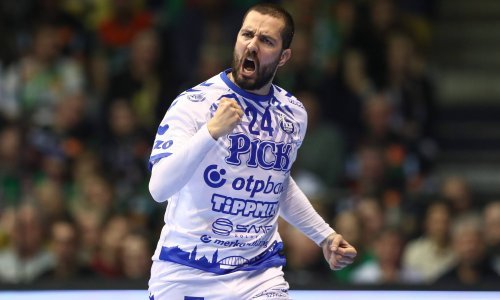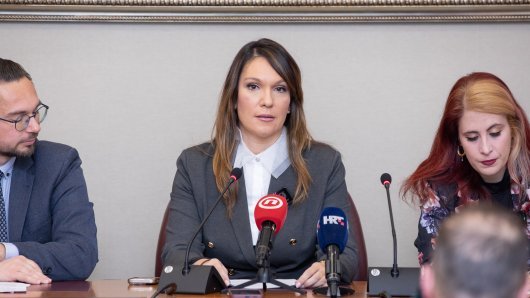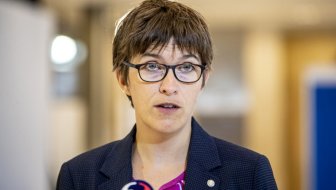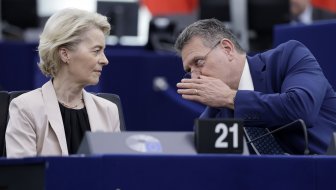The International Criminal Tribunal for the former Yugoslavia (ICTY) decided on Wednesday that the prosecutors had presented enough evidence to prove that Serbian Radical Party leader Vojislav Seselj had encouraged the persecution and other crimes against non-Serbs in Croatia, Bosnia and Herzegovina and Vojvodina and turned down his request to acquit him and throw out the indictment which charges him with war crimes committed between 1991 and 1993.
The Trial Chamber turns down the defendant's request, presiding judge Jean-Claude Antonetti said, adding that the examination of evidence led the judges to conclude that at this stage there is enough evidence to sentence the defendant beyond reasonable doubt for encouraging the crimes alleged in the nine counts of the indictment.
Seselj filed the request based on the ICTY rules that allow the defendant, after the prosecution is finished with introducing evidence, to explain to the Trial Chamber why he/she believes that the prosecutors failed to prove his/her responsibility.
Explaining the decision, Antonetti said the Trial Chamber had enough evidence to conclude that the defendant's speech was the speech of violence. Antonetti cited a number of Seselj's warmongering statements and testimony of people who testified about Seselj's warmongering speeches, including the residents of villages in Vojvodina who heard his "warnings" that it was time for them to move out of the country, or a statement by the head of the Vukovar Hospital, Vesna Bosanac, who heard him on the radio inciting his volunteers.
The Trial Chamber also said it had enough evidence to prove that Seselj had "systematically belittled Croats and Muslims" and spread the atmosphere of fear, Antonetti said.
The council has also concluded there is enough evidence that proves that Seselj incited Serbian Radical Party volunteers to carry out his nationalistic ideology, using all available means, Antonetti said, adding that the evidence shows that Seselj believed that these objectives could be carried out only by expulsion of the non-Serb population.
Antonetti also said at at this stage, the Trial Chamber had enough evidence to conclude that non-Serbs had been driven out of Croatia, Bosnia and Herzegovina, and Vojvodina.
The prosecution accused Seselj, alongside others involved in a criminal enterprise led by former Yugoslav President Slobodan Milosevic, of attempting to establish a new Serb state on Croatian, Bosnian and even Serbian territory via state-sponsored persecution which included the killing, deportation and mistreatment of Croats and Muslims and the plunder and destruction of their property.
Seselj is accused of crimes against humanity in Bosnia and Croatia, in particular of massacres at Ovcara and Vocin in Croatia and the expulsion of Croats from Vojvodina.
According to the prosecution, he advocated in public speeches the notion of a Greater Serbia, whose western border would run along the Virovitica-Karlovac-Karlobag line in Croatia, and with his extreme rhetoric he mobilised not only the armed SNS volunteer units under him, but other Serb forces as well, inciting them to persecute Croats and Muslims.
The prosecution introduced as evidence many of his inflammatory speeches and footage of him, in uniform or civilian clothing, visiting Serbian volunteer units which he incited to plunder and commit crimes in Croatia and Bosnia. In those videos, Seselj said he had mobilised SNS volunteers and sent them to Serbian lands in Croatia and Bosnia.
The prosecution called to the stand many victims, including survivors of the Ovcara and Vocin atrocities in which Seselj's volunteers took part, as well as Croats from Hrtkovci in Vojvodina, who started leaving in fear and under threat, after a speech in parliament in Belgrade in April 1992, in which Seselj advocated the expulsion of Croats from Vojvodina, and a rally in Hrtkovci the following May, when a list of the Croats and the Hungarians who had to leave was read out.
Seselj has been in ICTY detention since 2003.
The trial can now resume and the defence team for Seselj is expected to present their evidence.


































